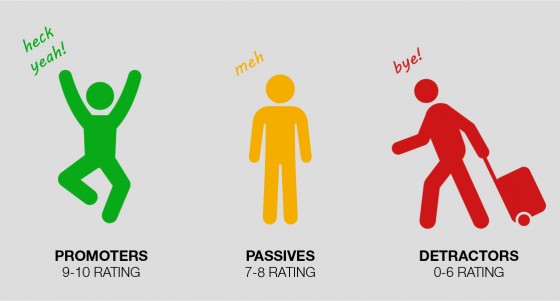


Net Promoter Score or NPS is a very useful tool when measuring customer satisfaction. It is all based around one single and simple question: How likely are you to recommend (insert your business) to a friend or colleague? They will answer on a scale of 1-10 where ten is extremely likely and one is that they would not recommend.
It has proven to be an accurate measure of customer satisfaction and customer loyalty but it has also proven to be an accurate predictor of the health of a business. The higher the NPS the better.
Conversely it has also been proven to be a predictor of a failing business, where the NPS is low the business is unlikely to survive as it is not meeting the needs of its customers.
(There is a massive amount of analysis available on line if you really want to get into this but the above is the general principle)
NPS data is cumulative. As more data is accumulated the NPS score becomes a more robust measure so it is important to collect a decent volume of data.
NPS is calculated as follows:

Here is a worked example:
It can often be difficult to get NPS scores, companies tend to keep them private but here are some to compare to:
Company NPS ( Jan 2020https://customer.guru/)
| Apple | 47 |
| Netflix | 13 |
| Amazon | 7 |
| Coca-Cola | 0 |
| McDonalds | -8 |
| -21 |
People are often surprised at how low NPS scores can be.
The hospitality industry in the UK doesn’t widely publish NPS but we can tell you that the businesses we deal with tend to range from around -5 through to 70.
So how do we drive NPS? Well that’s the topic for our next blog…..